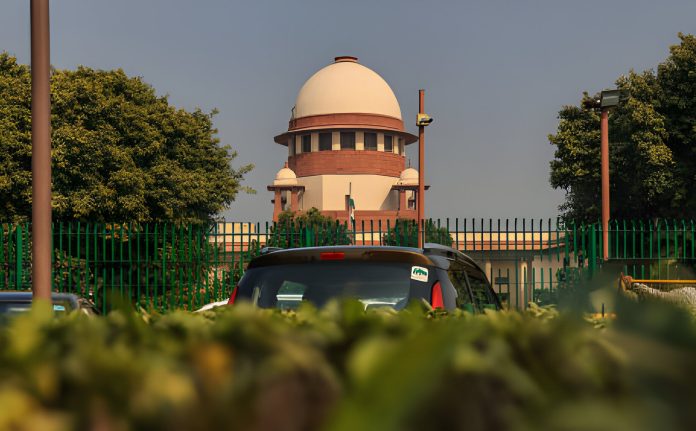NEW DELHI, Sept 6: The process of judicial appointments to a superior court is not the prerogative of an individual, the Supreme Court said on Friday and directed the Himachal Pradesh High Court collegium to reconsider “collectively” the elevation of two senior-most district and sessions judges, who were passed over for promotion to high court judgeship.
Click Here To Join Daily Excelsior on WhatsApp And Get Latest News
It said there was no collective consultation by the high court collegium on the elevation of district and sessions judges to the superior court and the decision on the suitability of the two senior-most judges appeared to be an “individual decision” of the chief justice.
The apex court also stressed on the need to protect certain sensitive information in matters involving appointment of judges and said disclosing such information would compromise not only the privacy of an individual but also the integrity of the process.
A bench of Justices Hrishikesh Roy and Prashant Kumar Mishra delivered its verdict on a plea by two senior-most district and sessions judges serving in Himachal Pradesh — Chirag Bhanu Singh and Arvind Malhotra — who had alleged that their merit and seniority were not considered by the high court collegium in selection of names for high court judgeship.
It said collegium of the Himachal Pradesh High Court should reconsider the names of these two judicial officers for elevation as high court judges.
“There was no collective consultation and deliberations by the members of the high court collegium,” the bench said, adding, “The decision of the chief justice of the high court, on the suitability of the two petitioners as conveyed in his letter dated March 6, 2024, appears to be an individual decision. The same therefore stand vitiated both procedurally and substantially”.
It also dealt with the issue of whether the elevation to judgeship of a high court has to be considered collectively by the high court collegium or the chief justice can reconsider the same acting individually.
“The process of judicial appointments to a superior court is not the prerogative of a single individual. Instead, it is a collaborative and participatory process involving all collegium members,” it said.
“The underlying principle is that the process of appointment of judges must reflect the collective wisdom that draws from diverse perspectives. Such a process ensures that principles of transparency and accountability are maintained,” the bench said.
Referring to previous judgements of the apex court, the bench said it has been emphasised that collaborative deliberations bring in transparency in the process, as decisions are deliberated, debated, and recorded.
It said this contributes to public trust in judiciary, as it demonstrates that appointments are being made after thorough consideration.
“Before parting, it needs to be stated that there is also a need to protect certain sensitive information in matters involving appointment of judges. While transparency is necessary to ensure fairness and accountability, it must be carefully balanced with the need to maintain confidentiality,” the bench said.
It noted that both the petitioners were recommended by the then high court collegium on December 6, 2022 for elevation as judges of the high court.
On July 12, 2023, the Supreme Court collegium had deferred their consideration, the bench noted, adding, on January 4 this year, the apex court collegium had resolved that the proposal for their elevation be remitted for reconsideration to the high court chief justice.
It also referred to a January 16, 2024 letter addressed by the Minister for Law and Justice to the chief justice of the high court in which a request was made that fresh recommendations be sent for the two judicial officers against the available service quota vacancies.
It said the grievance of the petitioners was that the high court collegium, without first reconsidering them in terms of the January 4 Supreme Court collegium resolution, had recommended two others for elevation.
The bench noted a report was filed before it by the high court’s registrar general and it reflected that the January 4 resolution of the apex court collegium was never received by the chief justice of the high court.
It also noted that on March 6, 2024, the high court’s chief justice had individually addressed a letter to the Supreme Court collegium on the suitability of the petitioners.
While dealing with the question of maintainability of the petition, the bench referred to previous judgements of the apex court and said the legal position clearly suggests that absence of consultation amongst the members of collegium would be within the limited purview of judicial review.
The bench said it was well-settled that the Supreme Court collegium does not sit in appeal over the high court collegium.
“It is a participatory process where each of the constitutional functionaries have a role to play,” it said.
It said the recommendation by the Supreme Court collegium for reconsideration was not expected to be addressed individually to all the members of high court collegium.
The bench said it appears to be a case where there was no collective consultation amongst the high court’s chief justice and the two senior-most companion judges.
“The writ petition is maintainable as it questions the lack of effective consultation,” it said, adding, “The chief justice of a high court cannot individually reconsider a recommendation and it can only be done by the high court collegium acting collectively”.
“In light of the above, the high court collegium should now reconsider the names of Chirag Bhanu Singh and Arvind Malhotra for elevation as judges of the high court, following the Supreme Court collegium decision dated January 4, 2024 and the Law Minister’s letter dated January 16, 2024. It is ordered accordingly,” the bench said. (Agencies)


